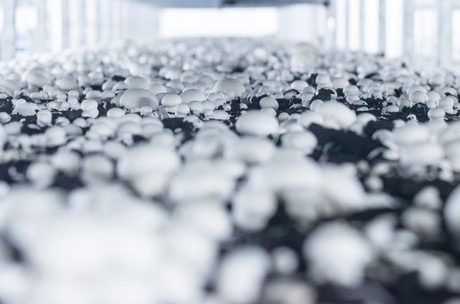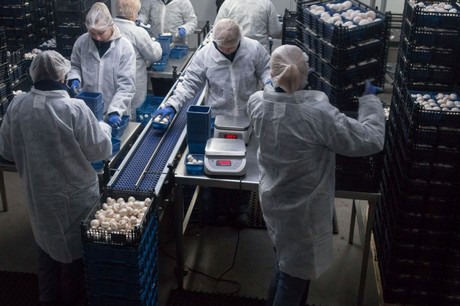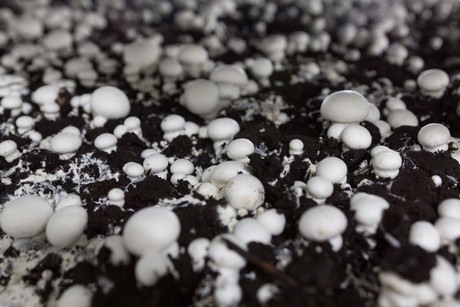The mushroom market in Poland is dealing with some hard challenges at the moment, which has led to price increase. The cause can’t be pinned down to a single event, but is an accumulation of several problems the exporters are facing right now. And then there’s still Brexit to take into account.
The Polish mushroom exporters have had a difficult season so far. The weather caused some issues last year during summer period, leading to subpar quality compost for growing the mushrooms and to increase of the straw’s price . According to Joanna Leszko from Grzybmar Matuszewscy, the Polish are facing a steep price increase due to several factors. “For one we’ve been very short in terms of labour force. Our workers mostly come from Ukraine, who celebrate Christmas two weeks later than us. This caused them to return only just now and left us very short handed for picking the mushrooms. The lack of labour meant a shortage of small sized mushrooms, although now that the workers are back that shortage is being dealt with the best we can.”

Although the workers are showing up to work again, the new year also meant an increase in their wage, as demanded by the Polish government at the start of 2019. This has an effect for the growers, says Leszko: “Workers get paid by the weight of the mushrooms they pick, but small sized mushrooms actually pay them more. It takes more work to pick the same amount of kilograms if you only pick the smaller sized mushrooms. The combination of their ‘vacation’, the increase in wage and the bonus they get for picking small mushrooms, led to a heavy increase in prices for the Polish mushrooms.”
Now that energy costs more in Poland, the effects of this are most definitely felt by the growers and the exporters, says Leszko: “The general costs of energy have increased by about 50 per cent. Take all these extra costs from the past few months and then take into account that processing factories will buy the small sized mushrooms for a similar price as exporters do. The difference is processing factories do not require good quality as export does. It means the mushroom growers in Poland don’t really need the exporters to sell of their small sized mushrooms. The price increase is necessary for the growers, or they simply will not make a profit from all their work. If the prices don’t go up, farms will have to start closing. This is not hypothetical, it’s already happening as we speak.”

Another big issue revolves around Brexit, as the United Kingdom is a very important market for Grzybmar: “Brexit remains a very big question mark for all of us. We’re hoping it will mess with the currency, so that we get more value for our produce, which will compensate for the extra costs. However, we need to be prepared for a lot more paperwork, although we have no idea what this big change will entail. For us, the United Kingdom is about 75 per cent of our business, with France taking up the other 25 per cent,” Leszko explains. “But we simply don’t know what’s going to happen, Brexit could still be postponed. We haven’t received any guidance from our government, or the British government.”
Even with Brexit looming over their heads, Grzybmar is still open for new customers from the United Kingdom the upcoming year: “Due to the price increases all over, people are looking for different options. We’re happy to try and accommodate these new clients. For 2019 we’d also like to develop our warehouses a bit more, maybe enter some other markets.”

Grzybmar also attended Fruit Logistica in Berlin and Leszko thinks they had a lot more visitors coming to their booth this year: “This year the exhibition felt more crowded than previous years, especially on the first day. Visitors were coming to our stand all day with little time to rest in between. This was great for us, of course. Berlin is great for meeting potential new customers, but it’s too early to tell what the results will be. This was the tenth time we’ve attended Fruit Logistica and what I’ve learned is that you calculate your results from a trade fair until six months later. It is also good opportunity to meet current customers, and chat about current collaborations face to face. Attending Fruit Logistica is very important for any trader that takes itself seriously, though. People need to see your brand and your produce and that you are still in the game!”
For more information:
Joanna Leszko
Grzybmar Matuszewscy
Tel: +48 61 44 33 404
Email: grzybmar@grzybmar.com.pl
www.grzybmar.pl
